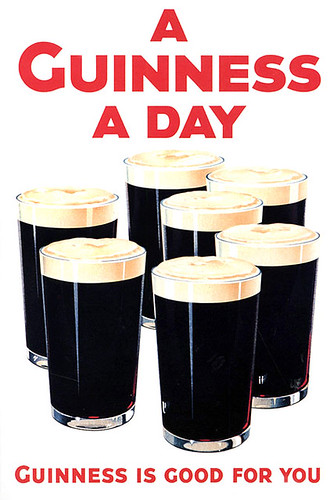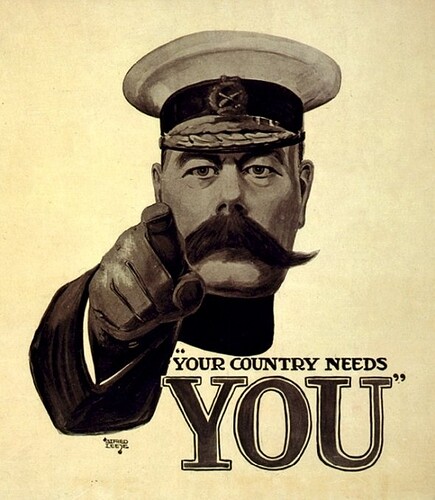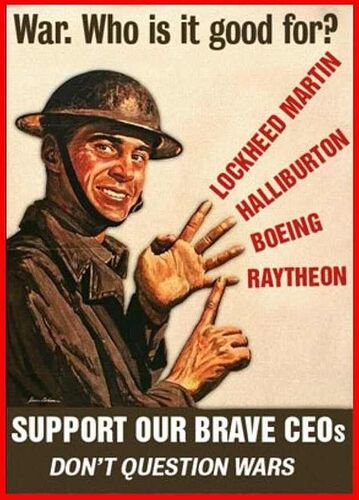It’s January 1, 1942 and the World is at war! Rather than face conscription and having a limited choice, you decide to enlist. You get to pick your branch of service, what would it be, and why? Also, be as specific as you can. For example, if you pick the Navy tell us if it’s because you are fascinated by submarines or something else. My choice is the Navy, in order to serve on a PT boat. I would find that very exciting. The air corps would be second, I love the B-17’s but their casualty rate was terrible.
I joined the U.S. Army, because in part, my extended ancestral Family always volunteered for service even back before there was a U.S. I joined the Combat Arm of Armor because I like Tanks, and thought it would be quite the adventure, which indeed it was.
I used to be in the REME, but nowadays what I do would see me put straight on the “Reserved Occupations” list.
Hmm… If it was a noncombat position, I’d be in one of the geocartography or aerial photograph interpretation stations, as that’s what I learned in school.
If it was a combat position, I’d probably pick something with the artillery, because who doesn’t like large calibre guns?
Navy! Would have loved to serve on the battleships even though they were becoming obsolete due to aircraft carriers.
Does Worthington still have you testing Ales? 

Could be that one might be dragged out to do battle one more time, it’s happened before.
Can’t see it happening.
Some were brought out during Vietnam War but, apart from a deterrent if China thought about getting involved on water, they were little more than close to shore mobile artillery batteries with a range of maybe 20 miles inland. Handy if you’re fighting an enemy on a 20 mile wide island, but not much use otherwise. Also, IIRC, naval bombardments in support of land troops / amphibious landings during WWII weren’t always a great success, although in many cases that might have been due to the munitions being designed for naval rather than land warfare. Plus battleships suck up a lot of support ships for their defence screen.
As for longer range missiles for land, sea and air warfare, they can be carried by ships which are much smaller, cheaper to build and cheaper to operate with smaller crews. These smaller ships, which if a battleship was on the water nowadays would be part of its screen and lack the mobility of independent action covering a much larger area of sea, are also capable of knocking out a battleship with equivalent missiles.
As for off shore land support artillery, IIRC correctly battleships couldn’t fire more than a few thousand rounds from their main guns before they had to return to port for a refit as the turrets started to pull out of the decks from the recoil. An aircraft carrier could deliver a lot more munitions a lot further inland, plus have the ability to defend itself from air and sea attack a lot better than a battleship.
The PT Boat service is an interesting choice. JFK went in largely on the propaganda machine that built them up as an elite, unconventional warfare service tantamount to today’s SEAL’s. The reality of course was somewhat different and few major ships were ever sunk due to the poor torpedo designs and the fact that the boats were much lighter and more fragile than their German E-boat counterparts. They did actually serve an “unconventional warfare” purpose however as barge busters with bloody, close in engagements reminiscent of the wooden ship and sail era.
Most people don’t know that Lieutenant Kennedy actually pioneered much tactics-wise long after his much heralded, ill-fated torpedo run on PT-109. The truth is his run ins with the Japanese after in personal, often close quarters combat was probably more gutsy and took its toll ultimate forcing him to quit. The fact that he was in near constant back pain his entire naval career is a bit remarkable actually and the fact that he served on such small boats in rough seas with such a degenerating back condition is unfathomable to me…
I would probably go Army as I did. I’m pretty sure I could have gotten (lied my way) into the Armored Force (even if not really qualified :mrgreen: ) at this point and might even have joined prewar…
Saying that too loud in 1940-41 would have gotten you beaten up! 
There was some speculative stuff on The National Interest site (a defense think tank started by Tricky DICK Nixon) that capital ships might make their way back as massive missile carrying platforms. But even the author admits that it was nothing but pure speculations.
Two or Three U.S. WWII era battleships, like the U.S.S. Iowa, were recommissioned and modernized in the mid-1980’s and served into the First Gulf War, then were promptly retired. Although they were noisy as hell, they were retired mainly because of the large crews made them expensive china. But they carried a lot of punch, but even white elephants have tusks. But not sure if they were really such large mammals or dinosaurs. But there’s little doubt they scared the bejesus out of the last generations of the Red Navy…
It’s not very likely, the last time one was let out of the house was the relief of Kuwait, and that as a feint to draw Iraq’s attention away from the real attack. They are hugely expensive to operate, but there is something oddly satisfying about loosing the main Batteries on a target . But you are correct, in our modern era we can just send a missile 1,000 miles to do the same job. No idea about turret refitting, have not heard of that before. I’ll have to look into that. I did read about a chemical weapon comprised of a 50-50 mix of Foster’s, and Miller Light that could render whole formations of enemy incapable of functioning for at least a day. (not from drinking it, just from having it touch their skin) 

Hey! I like Miller Lite! :rolleyes:
Yes, JFK was a real hero. One tough hombre, and a gentleman as well.
Just don’t mix it with fosters, you’ll be fine 
Since posting about the refit, my ancient brain dredged up an ancient memory that in Vietnam a US battleship brought out of mothballs could fire only 600, rather than thousands of, rounds from the main guns before requiring a refit to deal with the turrets pulling out of the deck.
Maybe the 600 figure comes from something else (e.g. The Charge of the Light Brigade) and I got crossed neurons, but it seems possible when you consider the amount of munitions required to enable each main turret to fire 600 rounds and the damage they could do to another capital ship, which was their main purpose when built.
Be good if one of our naval experts can deal with this.
Keep this to yourself, for Chrissake! If the towelheads find out that the mere threat of being exposed to this devil chemical would be enough to cause any Australian soldier to vacate the battlefield to avoid being turned into a girly man, they’ll corner the market in fake beer and drive the stock price of Fosters and Miller through the roof. 

Many moons ago Fosters was one of the standard beers here, before they castrated it for the foreign market.
We also had Peters Ice Cream, which proclaimed itself as ‘The health food of a nation’ (Try getting that past the modern food Nazis and consumer authorities etc).

This gave rise to the ditty:
“Fosters Lager, Fosters Lager,
Comes in bottles, cans and glasses.
It’s the health food of the nation,
Stick your ice creams
Up your arses.”

LOL There’s this old chesnut, I don’t think they dare make that advert now even if it’s very true…
Well, here comes me as the wet blanket for a fun fantasy.
For us down here, the opportunity to decide started when we entered the war on 3 September 1939.
Conscription wasn’t an issue at the start of our war. It was all volunteers for overseas service, although our militia (roughly similar to US National Guard) could be conscripted but only for service in Australia and its territories, which included Papua New Guinea where some of our militia units distinguished themselves against the Japanese in blunting the Japanese advance in 1942. The places where our conscripts could serve were extended pretty much to the SWPA in 1943, which conveniently happened to be the places on the way to MacArthur’s recapture of the Philippines although he carefully avoiding using Australian forces for his final thrust for glory in the SWPA despite happily using them up to the point that he launched his final assault on the Philippines.
Impossible to know how a WWII generation version of me would have felt in a country with a strong link to Britain which led a large majority of our people to support our entry into the war with Britain, in a pointless exercise to stop Germany’s invasion of Poland. I suspect that my Irish heritage would have encouraged me to view it as a European war which was none of my business and not worth risking my life in it, which was also the dominant view in the USA at the time.
Lucky for us that we raised several divisions for an expeditionary force of people who didn’t have my attitude and who fought in North Africa and were experienced combat troops when a couple of divisions returned home to fight the Japanese at a critical point in 1942-43.
My reluctance to engage in a European war certainly would have changed after Pearl Harbor and in the succeeding few months as Japan advanced towards us. I would have volunteered after Japan entered the war.
Army.
When you get shot / blown up / otherwise injured on land, soldiers have a significant advantage over airmen and sailors who have to reach land after being injured. It usually ends catastrophically for injured airmen whose planes spear into the landscape at high speed and a lingering death for injured sailors who don’t get picked up soon after being shipwrecked.
Airmen and sailors are also crews of and dependent upon machines of various sizes which fight other crews of and machines of various sizes or drop or fire munitions at distant and often unseen, and especially in the case of bombers, often civilian targets. Many airmen and most sailors didn’t have a weapon to fire at their enemy, on the very rare occasions they even saw their enemy.
I’d rather be an armed infantryman with a rifle and grenades against whoever I’m attacking / is attacking me and see the bastard I’m fighting. I lack the temperament and courage to be an unarmed pilot, navigator or bombardier in a bomber and just about every crew member in a naval ship unable to respond with a weapon to whoever is attacking them but still carry on doing everything but firing back at the bastards who are trying to kill me.
I am not fascinated by submarines, but I am fascinated by submariners.
I have no idea why anyone would want to go to war in a boat that’s already sunk before it even goes into action. Not only do they have the problem of not being on land if injured, they have to reach the surface without getting the bends before they’re even equal to the poor bloody surface sailors who are shipwrecked. Submariners are the most courageous sailors, probably the most courageous service people, just for leaving port on their sunken boats. I’d be a parachutist for a few minutes of uncertainty about whether my chute would open any time to avoid spending weeks and months in a submarine.
Despite my earlier comments about air and naval crews on machines I’d have preferred armour (on the basis of, compared with infantry, the weapons armour has and “Why walk when you can ride?” plus you can carry so much in the way of food and other comforts on any armoured vehicle unlike infantry which have to carry everything on their backs and bugger all of it in the way of comfort, apart perhaps from dry socks) but our main armour never left Australia during the Pacific War.
As there wasn’t much use for armour in most of Australia’s war against Japan, I’d have to choose infantry as it was the only corps which always engaged directly with the enemy in repelling them from our nation.
And then, twenty or so years after the war ended, probably having spent most of those twenty years arguing with Repatriation Department public service nit-picking arseholes trying to get parsimonious medical benefits for my war related injuries, I could have spent my income on all the flash cars and electronics and whitegoods coming from the nation we’d defeated without prosecuting the many war criminals still identifiable in post-war Japan.
Actually, if I knew then what I knew a few years after the war ended when the Yanks were pouring money into Japan and ignoring the war criminals to use Japan as a buffer and base against communist China and the USSR, no, I wouldn’t fight for this bullshit. But I still would have had to fight from the start of the war, because the people at the top of the food chain in all the countries involved ensured that millions of people, mostly civilians, would die on the battleground of ideas and egos and nationalism.
If only all the millions around the world then, before and since could see how we are duped and exploited by the bastards who run the world and convince us that patriotism is the same as preserving and advancing their interests.
P.S. If I had a free choice, I’d really like to have been a successful pilot in a Spitfire, Hurricane, Beaufighter, or (Merlin engine) Mustang. Or, if Japanese, Zero variants, Or, if German, their fighters. Which just goes to show that it’s the same stupidity across nations that allows men, and increasingly nowadays women, to go to war and die for the profit of the bastards who, for example, make the planes patriotic young people die in while the profiteers sit snug and safe at home.



